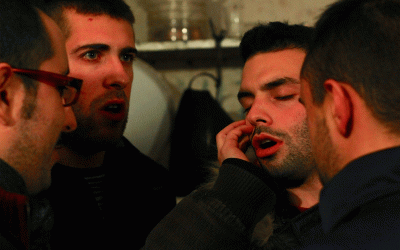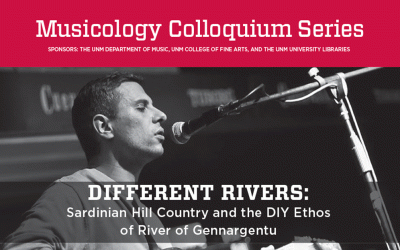Dr. Kristina Jacobsen wins award for an article
The article ‘Don’t Even Talk to Me if You’re Kinya’áanii [Towering House]’: Adopted Clans, Kinship, and ‘Blood’ in Navajo Country” was awarded “the most thought-provoking article in Native American and Indigenous Studies of 2019” by the Native American and Indigenous Studies Association.
“Kristina Jacobsen’s and Shirley Ann Bowman’s article offers an insightful view on the dynamic formation of the Diné/Navajo kinship system (k’é) through the practices of adopting and incorporating in clan formation in the late-nineteenth and early-twentieth centuries, with some glances at the omnipresence of this history in present times. Moreover, this study throws light on how adoption became the terrain for multiform racial, cultural, and geographical crossings in Navajo Nation-building and permanence; as well as on the extent settler-colonial policies on citizenship and “ancestry” historically disrupted this extraordinarily dynamic clan formation process. As a publication authored by a non-Indigenous and a Diné scholar, this article is a sample of collaborative practice and reciprocity, materialized in a well-grounded ethnographic, archival, linguistic, and cultural research. In our view, this study suggests important ways to historically reflect on questions of tribal enrollment, citizenship, identity, belonging, incorporation, and movement of peoples in American Indian life.” ~NAISA Prize Committee, 2019
Dr. Ana R. Alonso-Minutti Releases Book of Co-Edited Collection of Essays
A Book Presentation & Signing event for Dr. Alonso-Minutti co-edited collection of essays, Experimentalisms in Practice: Music Perspectives in Latin America, published by Oxford University Press earlier this year, at the UNM Bookstore.
Cuncordu Sas Bator Colonnas perform at Outpost
Sas Bator Colonnas is a multipart singing group from the Scano di Montiferro, a mountainous region in central Sardinia, Italy. Antioco Milia, Antonio Carboni, Stefano Desogos and Francesco Fodde started singing together in 2002, carrying on the vernacularmultipart singing practice, one of the most representative cultural forms of their village and their island, which is performed by four male singers and called cuncordu.
Different Rivers: Sardinian Hill Country and the DIY Ethos of River of Gennargentu
In the summer of 2014, the Bluesman “River of Gennargentu” released, on his SoundCloud page, three songs of hill country blues, sung in English and played with a technique like those of historical Delta blues artists, recorded in low-quality sound. Within a few months, the web page collected dozens of comments from users who were amazed by this new “discovery” and demanded the real artist’s origin, as-yet-not-specified.



